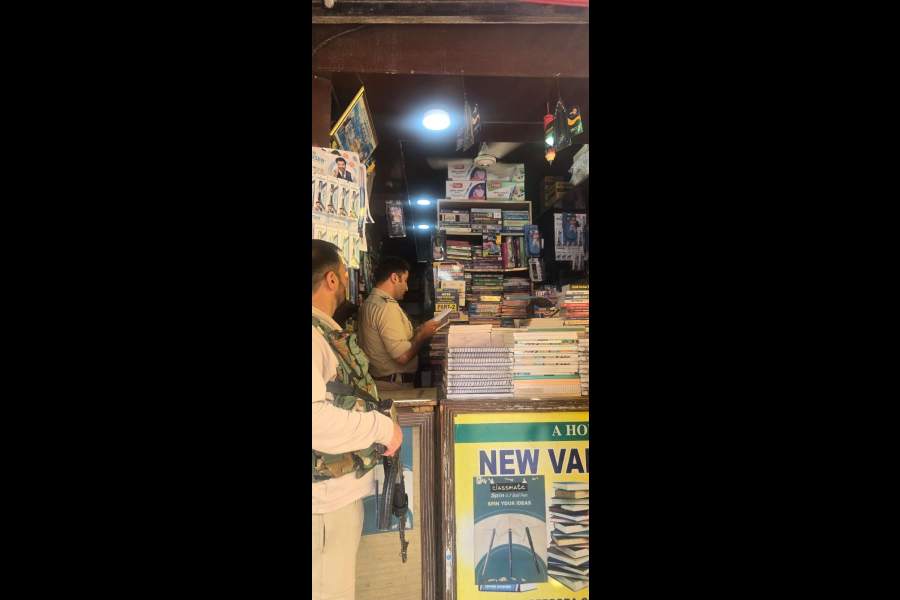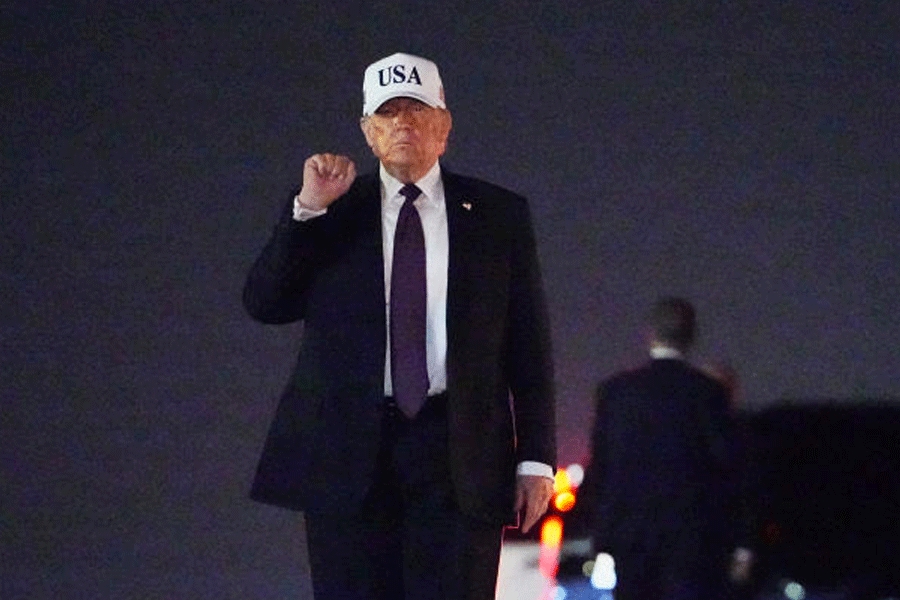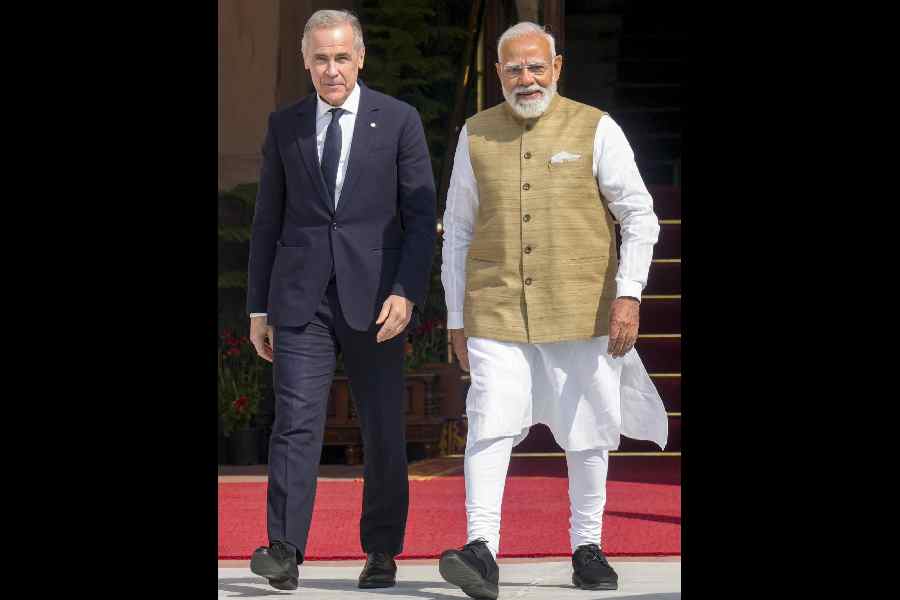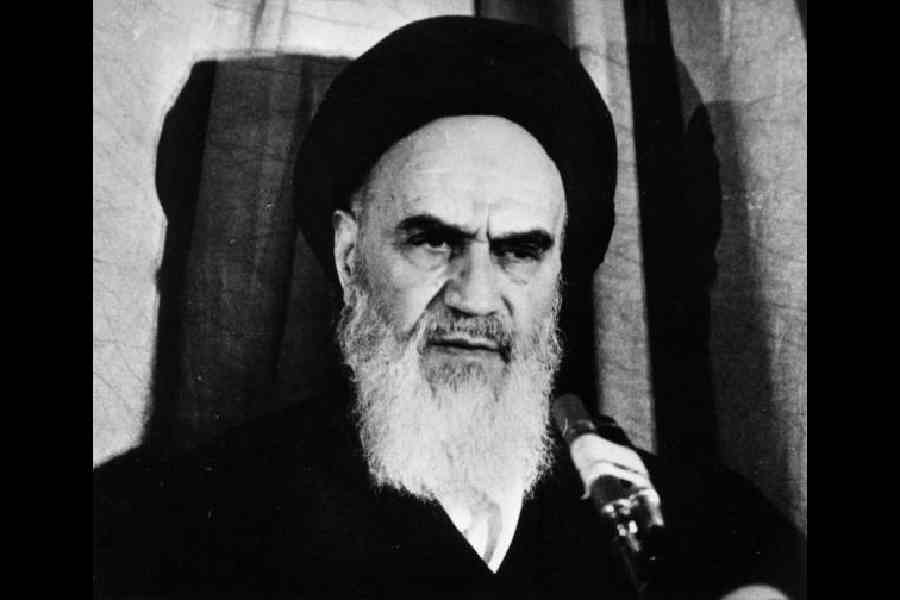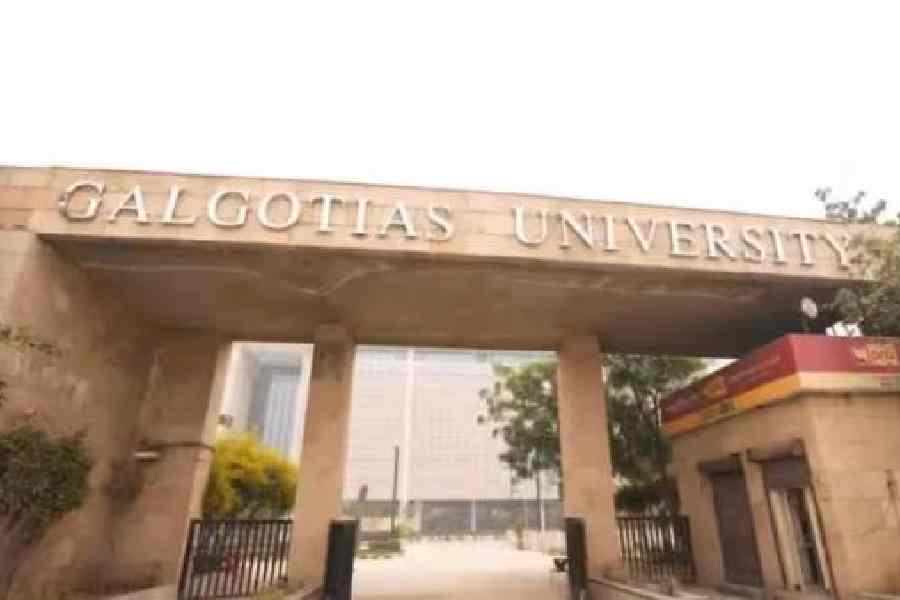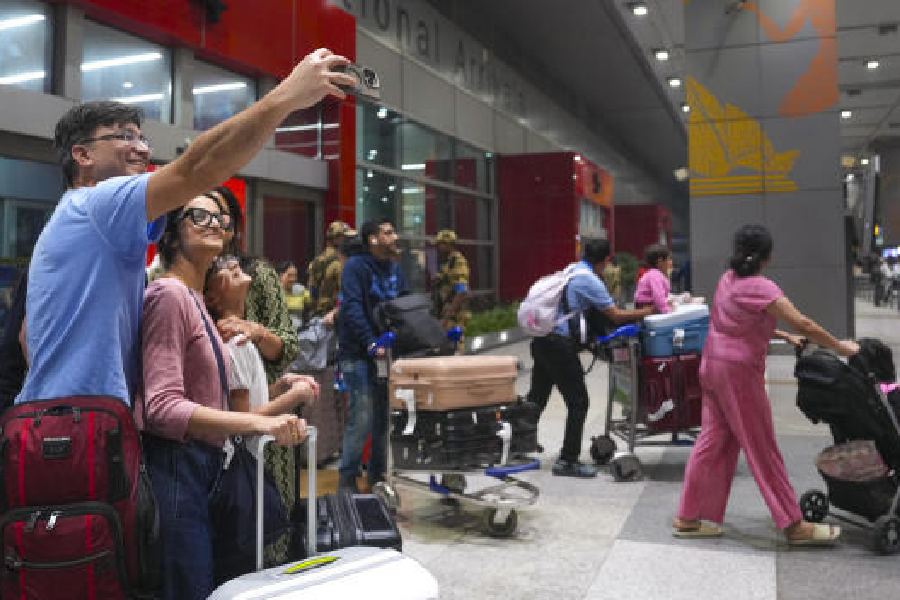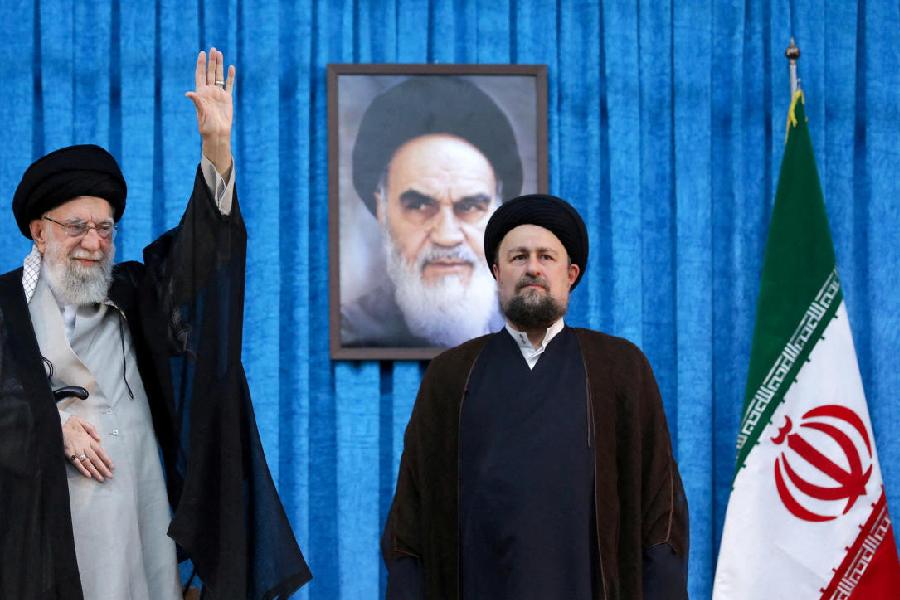Once, they would come looking for guns. Now, many here fear, the security forces might raid their homes looking for banned books.
The administration’s years-long crackdown on dissent in Kashmir now encompasses the works of acclaimed national and international writers. Lieutenant governor Manoj Sinha has declared 25 titles forfeit – requiring anyone who has a copy to surrender it to the authorities — on the grounds that these books carry the threat of radicalisation or glorify terrorism.
The order — issued on August 5, coinciding with the sixth anniversary of the scrapping of Jammu and Kashmir’s special status — became public knowledge only on Wednesday.
Police immediately went full throttle, seizing these titles from several bookstores in the Valley.
Despite the palpable popular outrage, few are willing to declare publicly whether they would comply with the order or defy it.
Hakim Sameer Hamdani, renowned scholar and chronicler of Kashmir’s socio-cultural history and architecture, posted a cryptic riposte on X: “Why go against books?”
Major political parties like the National Conference and the People’s Democratic Party maintained a conspicuous silence for more than 24 hours.
Former chief minister Mehbooba Mufti spoke up on Thursday, saying censorship doesn’t silence ideas but amplifies their resonance, and that suppressing democratic voices and fundamental freedoms deepens alienation and mistrust.
Sinha’s order has been issued under Section 98 of the Bharatiya Nagarik Suraksha Sanhita. Legal experts here said it makes it unlawful to buy, sell, possess, print or distribute these books.
Kashmir’s chief cleric, Mirwaiz Umar Farooq, was among the few prominent people to react on Thursday, saying the ban “will not erase historical facts and the repertoire of lived memories of the people of Kashmir”.
Among the books banned are Arundhati Roy’s Azadi, Sumantra Bose’s Kashmir at the Crossroads, A.G. Noorani’s The Kashmir Dispute 1947-2012, Anuradha Bhasin’s A Dismantled State (The Untold Story of Kashmir after Article 370), David Devadas’s In Search of a Future (The Story of Kashmir), and Hafsa Kanjwal’s Colonising Kashmir: State-Building under Indian Occupation.
Also banned are books by renowned foreign authors such as Kashmir in Conflict by Victoria Schofield and Independent Kashmir by Christopher Snedden.
The Mirwaiz posted on X: “It only exposes the insecurities and limited understanding of those behind such authoritarian actions, and the contradiction in proudly hosting the ongoing Book Festival to showcase its literary commitment!”
He told The Telegraph: “These books discuss history. They give you knowledge and one wonders what kind of society they want…. This has to change.
“We don’t know whether they will go to every house looking for these books, which would be next level of fascism…. At best, you can come out with a counter-narrative.
“The books on the list include some written by Moulana Maududi. You might disagree with some of what he said but you cannot deny he was a great scholar. Similarly, (books by) scholars like Syed Qutub, who presents a diverse opinion, (are banned).”
The Mirwaiz, who was placed under house arrest for years continuously after the abrogation of Article 370 and still faces occasional curbs, said he had read most of the proscribed books and asserted they don’t contain any propaganda.
He, however, reserved his comment on whether he would defy the directive or comply with it.
Journalist Anuradha Bhasin Jamwal, author of one of the banned books, said the assault on books had come after the government had silenced journalism in the Valley by turning newspapers into “mouthpieces of the State”.
She said she had read most of the banned books and asserted that none of them glorified terrorism.
“Most of these books are published by international publications and based on rigorous research. They (the government) want to put the facts out of public memory, out of print. The government is scared of words challenging its lies,” she said.
“What I fear the most is that people will now be scared of other books as well, fearing such books could be weaponised against them tomorrow.”
She added: “I’m still trying to process what has happened but I will not be quiet. I think it needs to be challenged by writing more.”
Bhasin’s Kashmir Times, the oldest English newspaper in Jammu and Kashmir, had to close after its Srinagar office was sealed and it was starved of government advertisements. It brings out only a web edition.
If Sinha’s order and the subsequent police raids have frightened readers, they have frightened booksellers even more.
An obviously panicky owner of a leading publishing house in Kashmir said that none of the proscribed books had been available at his shops even before the order.
“We have not been served with any order, and whatever we read was through social media,” he said.
“The circular says we have to surrender the books. In my case, there is no need as none of these books were available at our shops.”
The newspaper is refraining from revealing the publisher’s name to protect him.
Former Jammu and Kashmir police chief Kuldeep Khoda, however, defended the government decision. He said books had been banned in the past as well, and cited the example of Salman Rushdie’s The Satanic Verses. He said Jawahar Lal Nehru and Indira Gandhi too had banned books.
“Whether it’s a book, film or (some other) product, when it is spurious or carries fiction that can endanger peace or promote separatist activities, the government is duty-bound to ban them,” he said.
“Obviously, the committee chosen (to ban) those books must have examined them…. It’s expected that these books have been banned in the national interest.”
The government order says the books have been found to attract secessionism and endanger the sovereignty and integrity of India, thereby attracting the provisions of Sections 152, 196 and 197 of the Bharatiya Nyaya Sanhita, which prescribes punishments for booksellers, readers, publishers and authors.
Police in the Anantnag and Ganderbal districts said they had conducted a drive to seize the “radical literature” in line with the government directive.
“The operation targeted materials promoting secessionist ideologies or glorifying terrorism. Public cooperation is solicited to uphold peace and integrity,” the Anantnag police said.

